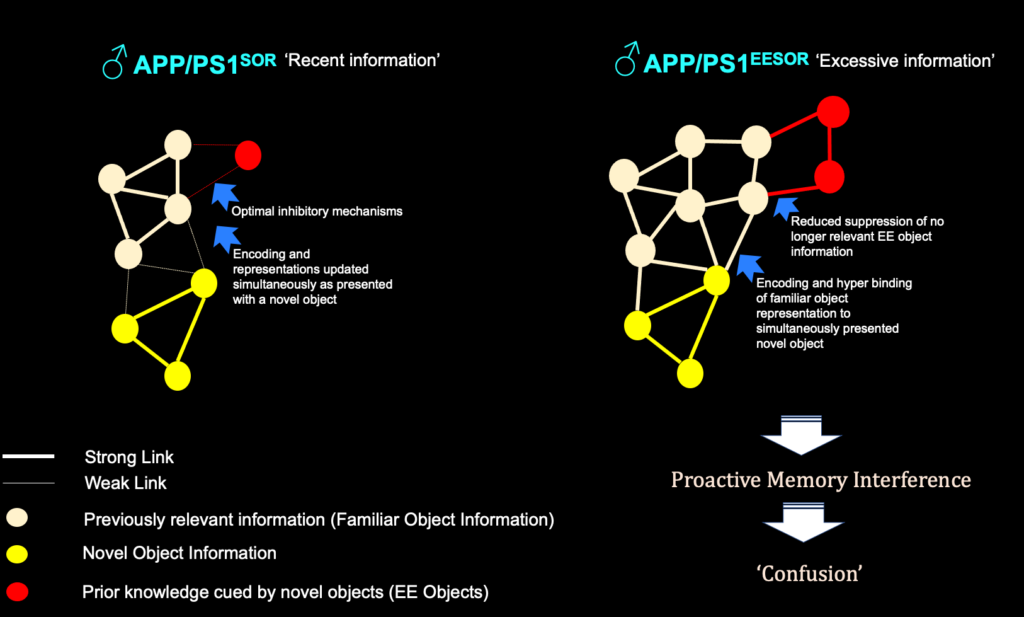
Earlier studies have demonstrated that memory dysfunction during early Alzheimer’s disease (AD) is associated with an increased susceptibility to memory interference leading to confusion in landmarks, medication, objects etc. Results from behavioural experiments in Dr Karunakaran’s lab indicate that both 2-month-old male and female APPswe/PS1dE9 mice, a mouse model of AD, display intact object recognition memory. However, post weaning environmental enrichment (EE) leads to a decrease in discrimination of novel object from the familiar object by male but not female APP/PS1 mice. Crucially, it has been found that the memory impairment in APP/PS1 mice was not due to a lack of attention or disinterest in exploring objects, rather paradoxically, male mice who underwent EE demonstrated a decreased tendency to discriminate the familiar object from the novel object unlike their female counterpart.
Last Updated on September 17, 2022
References :
Shanice Jessica Hermon, Smitha Karunakaran. (2022). Duality in recognition memory deficits in APPswe/PS1dE9 mice. Behavioural Brain Research, 2022 (Under review)
Shanice Jessica Hermon, Smitha Karunakaran. (2022). Duality in recognition memory deficits in APPswe/PS1dE9 mice. Behavioural Brain Research, 2022 (Under review)
![]()
